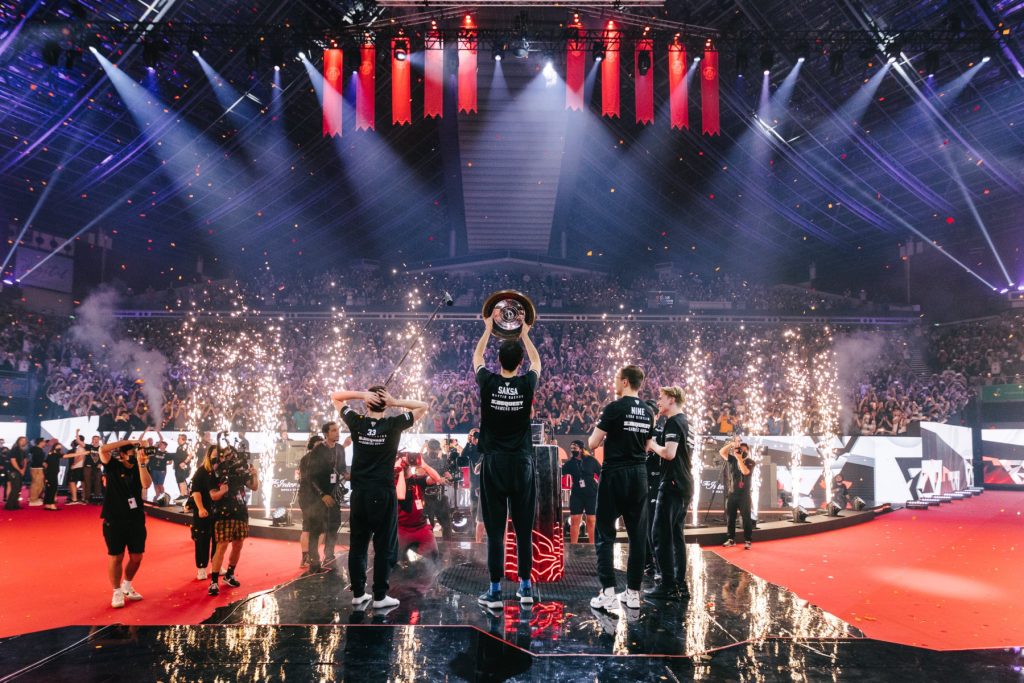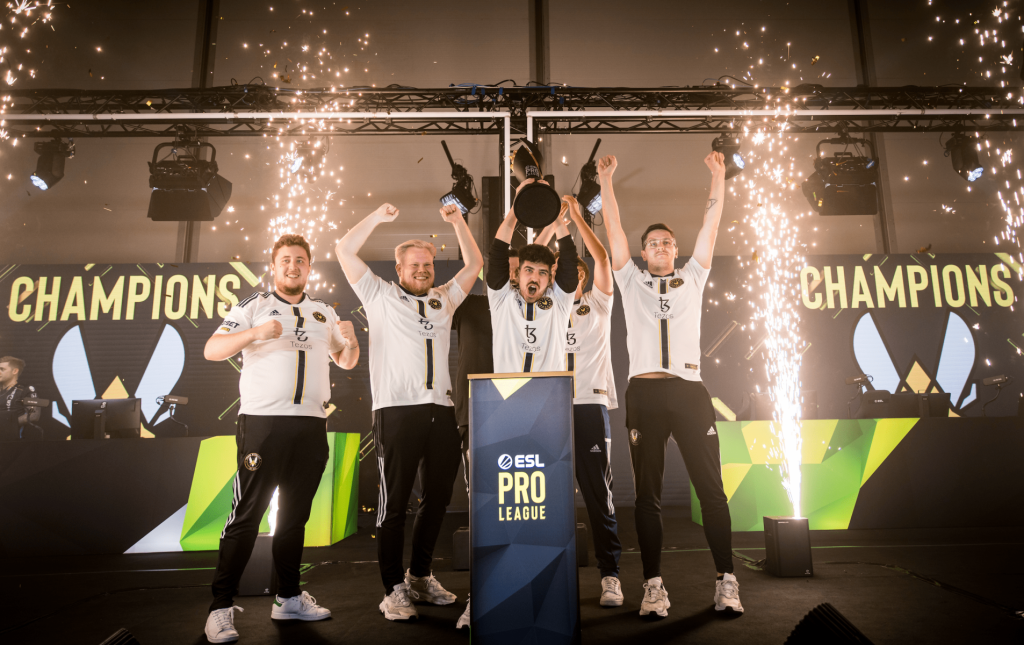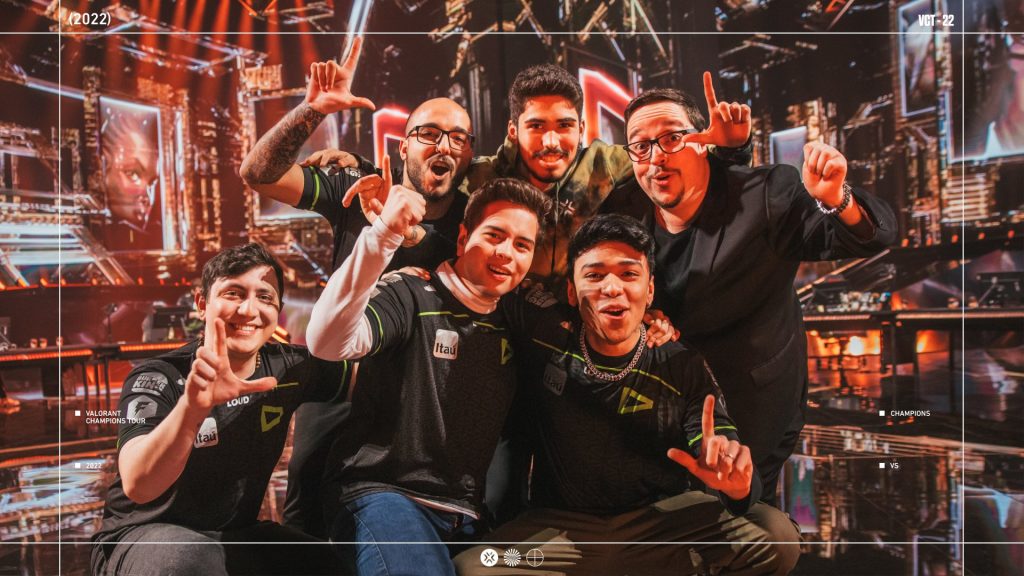
Each year, Esports Insider gathers the views of industry leaders in the world of esports to reflect on and review the year, as well as look ahead into 2023.
It’s hard to choose a single narrative or trend that defined the year. 2022 saw blockchain flip from a strong industry partner to a liability, diversification emerge as a vital business strategy, and increased scrutiny amongst the investors that had previously regaled the industry with venture capital.
Below, in the first part of Esports Insider’s two-part series, the likes of ESL FACEIT Group, Team Vitality, Team Liquid and Prodigy Agency define esports in 2022, highlight standout trends, and opine on which titles have developed the most.
You can compare their answers to previous years from our 2020 and 2021 editions. Without further ado, here’s our 2022 industry review.
How would you define esports in 2022?
There are plenty of ways to define esports, and plenty of defining changes this year — the range in the answers below is proof.
Josie Brown, SVP of Brand, Content and Marketing, Team Liquid: “Resurgence. Esports came back in a big way this year, with League of Legends, VALORANT, CS:GO, and DOTA all continuing to push the boundaries of what can be done in the industry.”
Wouter Sleijffers, CEO, EXCEL Esports: “The return to live events! Esports is not esports without the studio and stadium events. People must witness the best of the best, whether it’s the gaming talent or fans, at its full scale.
“Of course, also in esports, it’s been the rise and fall of crypto, tokens and NFTs. I’m hopeful though that blockchain as a whole will remain a potential game-changer.”
Miles Yim, Associate Director, The Story Mob: “Searching for an equilibrium. Despite all of the positives this year — the return to live events, more meaningful collabs with influencers, a purposeful diversification of content streams beyond competitive coverage — the current macro-narrative around esports has trended negative.
“We’re caught up in recession storylines, the alleged flight of VC investment, the comedown in viewership from pandemic highs, and we fail to adequately gauge the success we had this year or where we’re headed.”
Craig Levine, Co-CEO, ESL FACEIT Group (EFG): “We’ve seen more sophistication and understanding around what the word ‘esports’ means. For me, I would actually be more rigorous in that definition and I would start to differentiate between esports and competitive gaming.
“Esports to us is both the competition of the world’s best players coming together, an audience at scale and fandom that celebrates and consumes the competition. Lots of games are competitive, but I would argue very, very few are esports.
“As we look forward in the industry, I think getting more refinement around the delineation of the opportunity is important, or the specific community around each game is important, because that shapes the approach and ensures everyone engages with those communities in the right way.”
Stuart Saw, CEO and Co-Founder, RTS: “Esports like any other sport is ever-evolving, storylines and their associated games rise and fall. I don’t believe there are annual definitions of any one sport and thus I don’t think that’s true of esports either.”
What do you think were some of the standout trends this year, from a business perspective?

With a confluence of new and existing trends, there were plenty of narratives brewing in 2022. We asked stakeholders to choose the most important.
Wouter Sleijffers, CEO, EXCEL Esports: “Production levels are back up to where they’ve been, which I believe is very important for the further development of our industry. I’m also very happy to see the growth and success of ‘endemic’ enablers such as data tracking, agencies, content production, etc… Their continued success is critical for the further maturing of our industry and monetisation models.
“Finally, we see that in-game monetisation has found new ways to take brands into gaming environments. It’s great to see a significant ‘endemic’ revenue stream becoming a larger opportunity, as it’s an example of how it can differentiate from other large media & entertainment verticals.”
Miles Yim, Associate Director, The Story Mob: “There were a few, but one that I enjoyed quite a bit was the further proliferation of co-streaming in mainstream media. I’m thinking of the Manning Cast, where Peyton and Eli Manning essentially co-stream NFL games on cable TV.
“It’s an innovation that our community pioneered (who can forget the early VALORANT esports co-streams by Myth and Shroud?), so every time I read how much people enjoy the Manning Cast, it feels like a win for esports. We were there first! We championed a new broadcast model, the business implications of which we’re only beginning to understand.”
Nicolas Maurer, CEO, Team Vitality: “Within the sector, we have seen the ups and downs of the crypto investments proving once again that the team, despite all the good initiatives related to revenue diversification, are still relying too much on sponsorship investment.”
Evgeniy Roshchupkin, CEO, Tundra Esports: “The year of global instability and financial markets turmoil had a major impact on the esports industry. It is encouraging to see more esports orgs going public, they are going through tough times, but this is a great learning for the whole industry to identify the right business models.
“Web3 partnerships in esports have been a major trend with both positive and quite negative experiences. We are seeing esports businesses learning to focus on providing true value to fans, which will be the main success factor in such partnerships.”
Josie Brown, SVP of Brand, Content and Marketing, Team Liquid: “I’m encouraged by the way more organisations are valuing entertaining content outside of the strictly athletic sphere. One of my big goals at Team Liquid is to broaden our focus into talk shows (Two People Talking), streamer competitions (The Next Wave) and events (Race to World First) more than ever before. We hope that this will further engage our current fan base and open doors to new fans who love our shows!”
Jérôme Coupez, CEO, Prodigy Agency: “On our side, we have seen that brands, and especially non-endemic brands, are really starting to switch their focus into the influencers and players. That’s something we have been working and pushing for years, educating the brands on the leverage the players have with the fans and I’m glad to see it paying off.”
Grant Zinn, CEO, Beastcoast: “There’s been a push for organisations to put roots down and begin growing their regional fandom. Beastcoast is making a move to the midwest and bringing some of our pro players with us. We’re trying to provide our players more opportunities, like our partnership with Butler University, and also foster an interest in esports from one of the major regions of the US.”
What has been your company’s greatest achievement in 2022?

2022, and particularly the culminating quarter, was a difficult year for many esports businesses, but it’s easy to let short-term trends overshadow successes. We asked companies to highlight their biggest achievements this year, and summarised them below.
Beastcoast: Celebrating its five-year anniversary, finishing in the top eight of The International, moving to Butler’s Esport Park and expanding its presence in Pokemon.
ESL FACEIT Group: The merger of ESL and FACEIT to create EFG, and building a new strategic position for the combined company.
EXCEL Esports: Entering VALORANT Game Changers, doubling down on content, and a flurry of activity at EXCEL’s London-based XLHQ.
Prodigy Agency: Developing more opportunities for players to partner with premium brands, via long-term ambassadorships or launching products, such as TenZ’s Finalmouse collaboration.
RTS: The company’s first joint venture with EVO and the success of the FGC showcase.
Savvy Games Group: Acquiring ESL Gaming and FACEIT to create ESL FACEIT Group and subsequently investing further into the sector.
The Story Mob: Refining its practices such as hiring, client services and media relations. Trialling its four-day workweek initiative.
Tundra Esports: Winning The International 2022, FNCS in Fortnite, new signings and the talent on its commercial, content and marketing teams.
Team Vitality: Its CS:GO team winning ESL Pro League, being selected for the VALORANT Champions Tour for 2023 (the only European team to have slots in LEC, ESL Pro League, BLAST and VCT), and launching its mobile application V.Hive.
Team Liquid: The ‘A Wave of One’ campaign published in the fall which saw the organisation take its first step into thematically linking its teams together.
VOV: Opening its first physical venue, The Zone, in Riyadh as well as partnering with the Saudi Arabian Ministry of Health.
Which esports title do you think has undergone the most development in 2022?

A few new candidates cropped up this year. Companies pointed to numerous games that are going in the right direction, a vote of confidence in esports’ breadth. However, one title still remained at the top of nearly everybody’s list.
Jérôme Coupez, CEO, Prodigy Agency: “I think VALORANT and Rocket League have undergone the most development in 2022. VALORANT has quickly become a top-tier esports title and is still growing with the announcement of the partnership model for 2023 and beyond. Rocket League is also on the rise, especially for the younger generation, and I think it’s totally deserved for such an exciting game.”
Craig Levine, Co-CEO, EFG: “To me, Rocket League is one of the most exciting esports titles out there. It’s got a dynamic and vibrant community and player base and we’ve seen their energy at Dreamhack festival and how fans fill arenas around the world. It’s arguably one of the most approachable and exciting esports titles that are out there. We think there’s so much more growth in that community – especially as they launch mobile as well.”
Nicolas Maurer, CEO, Team Vitality: Definitely VALORANT! Even though it is a pretty young game, it has become a tier 1 esport in a short time. Riot is doing a very good job on the game, the viewing experience and the overall ecosystem. On top of our VCT selection, we are also strongly supporting the VCT Game Changers initiative. We are very much looking forward to 2023!”
Evgeniy Roshchupkin, CEO, Tundra Esports: “This would have to be the development of Valorant’s esports circuit with the introduction of VALORANT partnership programme for 2023. We welcome such long-term partnership programs with the best organisations, at the same time allowing the new and ambitious teams to qualify and compete at the top level in the regional leagues.
“We witnessed Psyonix (and Epic) in improving its exciting esports ecosystem around Rocket League, making it one of the most dynamic esports with great rivalries and growing international audiences.”
Want to see the esports industry’s predictions for 2023? Click here to read our report on esports business trends and predictions for the coming year.

